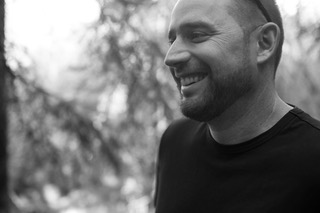ADHD and Depression
What Is The Connection?
At first glance, ADHD and depression have a lot in common. Both make it difficult to concentrate, remember things, feel motivated or sleep well. They are also associated with moodiness and irritability. Once you get into the details, they look very different. ADHD and depression can occur together, though.
What Is The Difference?
Depression comes and goes. A person could spend large parts of their life not being depressed. The biggest difference is that ADHD has pretty much always existed across most aspects of your life.
Do People With ADHD Get Easily Depressed?
Just because you have ADHD does not guarantee that you will develop depression. However, it can trigger very powerful emotions as you live life with a few quirks. This could be socially, in school, at work or in relationships. You may forget about assignments or do poorly on tests because you could not force yourself to study. These issues may persist into your professional life, difficulty with paperwork and punctuality, or just trying to keep up with it all. You may be upset and offend somebody without thinking. You may seem disinterested in other people because you struggle to focus during social interactions. You can become so demoralised in a desperate struggle to keep everything straight. “ADHD makes a person’s life harder, so it makes sense that they have more to be depressed about. This is especially true when ADHD difficulties persist. Bear in mind that the ADHD environment does not always lead to depression. Also consider genetics, biological or neurochemical factors. Everybody reacts differently” (Greenberger & Padesky, 2016).
What To Treat First
If ADHD struggles are driving the depression, then it is primary and needs to be considered first. “This often results in a two-for-one, because treating the ADHD improves the depression, making a person feel more effective and feel better about themselves. If the depression is severe enough that it interferes with the ability to address the ADHD, then that becomes primary” (Tuckman, 2012). Most of the time, we treat both simultaneously, at least in therapy.
What Can I Do?
- Get professional help through your physician and/or psychologist.
- Get your ADHD treated. It may have fueled your depression. Potentially it could really turn things around in more ways than one.
- Take action, even if you are not motivated. Sometimes we can do things even if we don’t really want to. When you are feeling just plain blah, tell yourself that ‘this will make you feel better or at least take a chance that it might’.
- Don’t let your negative self-talk loop kick in. Evaluate how you feel. Decide what your ‘best’ will look like for today.
- Life is not perfect. Appreciate the little things that help you get through the day.
Sources:
Greenberger, D. and Padesky, C. (2016). Mind over Mood. The Guilford Press, New York, New York.
Tuckman, A.(2012). More Attention, Less Deficit. Specialty Press, Plantation, Florida.
Roché Herbst
M.A.R. Psych
info@wehcs.com
My practice location is from my home office in Bragg Creek Mondays and Wednesdays 10am-5pm; Calgary office Tuesdays and Thursdays 9am-4pm. Call or text me on (403) 510-9984 or email: info@wehcs.com























